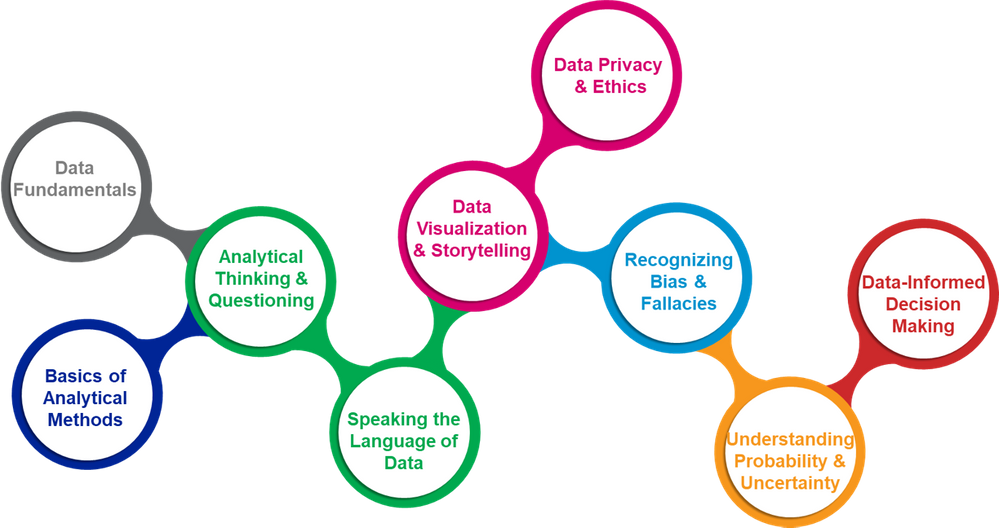Data Literacy ~ Data Quality
Data Quality
The knowledge and skills required to critically assess data sources to ensure they meet the needs of an organization. This includes identifying errors or problems and taking action to correct them. This also includes awareness of organizational policies, procedures and standards to ensure good quality data (Statistics Canada, 2020).
Koltay, 2015: data quality is one of the cornerstones of the data-intensive paradigm of scientific research that is determined by multiple factors. The first one is trust, which is complex in itself. The elements of trust include the lineage, version and error rate of data and the fact that they are understood and acceptable (Buckland, 2011).
By reviewing quality attributes extensively, Giarlo (2013) argues that trust depends on subjective judgements on authenticity, acceptability or applicability of the data; and is also influenced by the given subject discipline, the reputation of those responsible for the creation of the data, and the biases of the persons who are evaluating the data. It is also related to cognitive authority, which has two levels. At an operational level, cognitive authority is the extent to which users think that they can trust the information.
On a more general level, cognitive authority refers to influences that a user would recognize as proper because the information therein is thought to be credible and worthy of belief (Rieh, 2002). The next factor of data quality is authenticity, which measures the extent to which the data is judged to represent the proper ways of conducting scientific research, including the reliability of the instruments used to gather the data, the soundness of underlying theoretical frameworks, the completeness, accuracy, and validity of the data. In order to evaluate authenticity, the data must be understandable."
---
Relevant Links
These links are typically articles defining data literacy that include this theme in their definition.
, Canada.ca, 2021;, Apolitical, 2021;, Chantel Ridsdale, et.al., Dalhousie University, 2015;, Nora Mulvaney, Audrey Wubbenhorst, Amtoj Kaur, Ryerson University, 2022;, Databilities, Data to the People, 2020;, Annika Wolff, Daniel Gooch, Jose J. Cavero Montaner, Umar Rashid, Gerd Kortuem, 2016;, Helena Sternkopf, Roland M. Mueller, University of Hawai'i at Manoa, Proceedings of the 51st Hawaii International Conference on System Sciences, 2018;, Andreas Grillenberger, Ralf Romeike, Proceedings of the 13th Workshop in Primary and Secondary Computing Education, 2018;, Edith Gummer, Ellen B. Mandinach, Teachers College Record, 2015;, Australian Public Service Commission, Government of Australia, 2021;, elearning Curve, 2022;, Tibor Koltay, Journal of Librarianship and Information Science, 2015;, Statistics Canada, Government of Canada, ;
